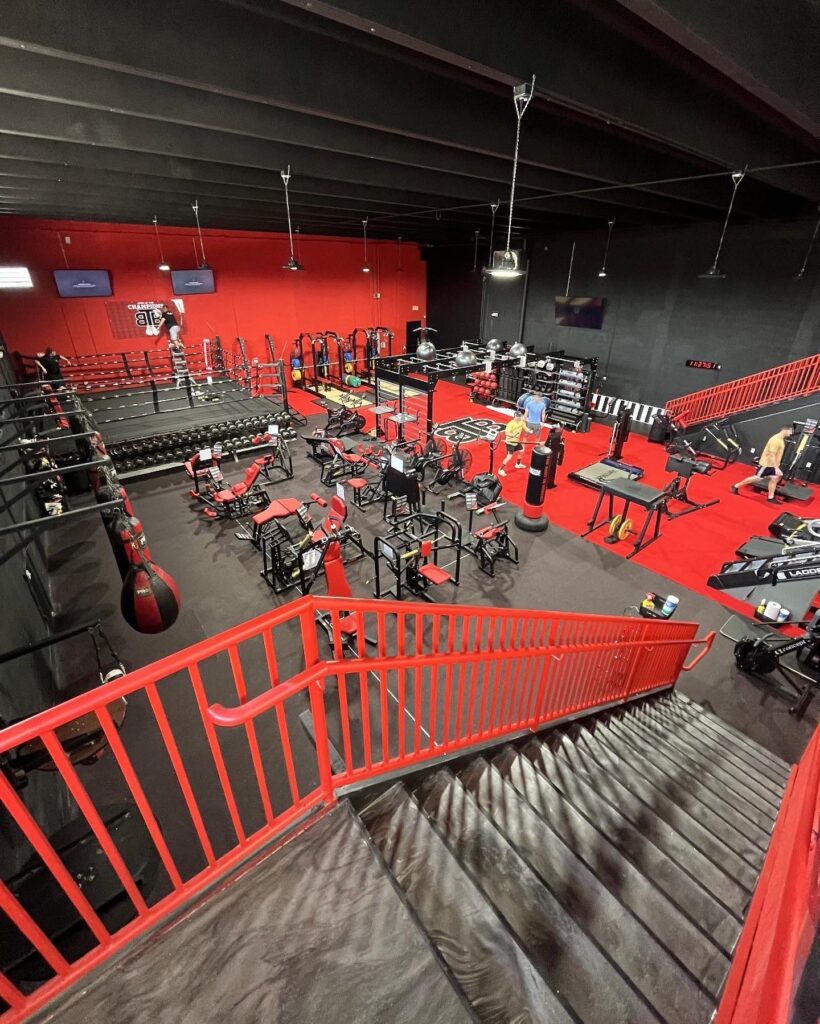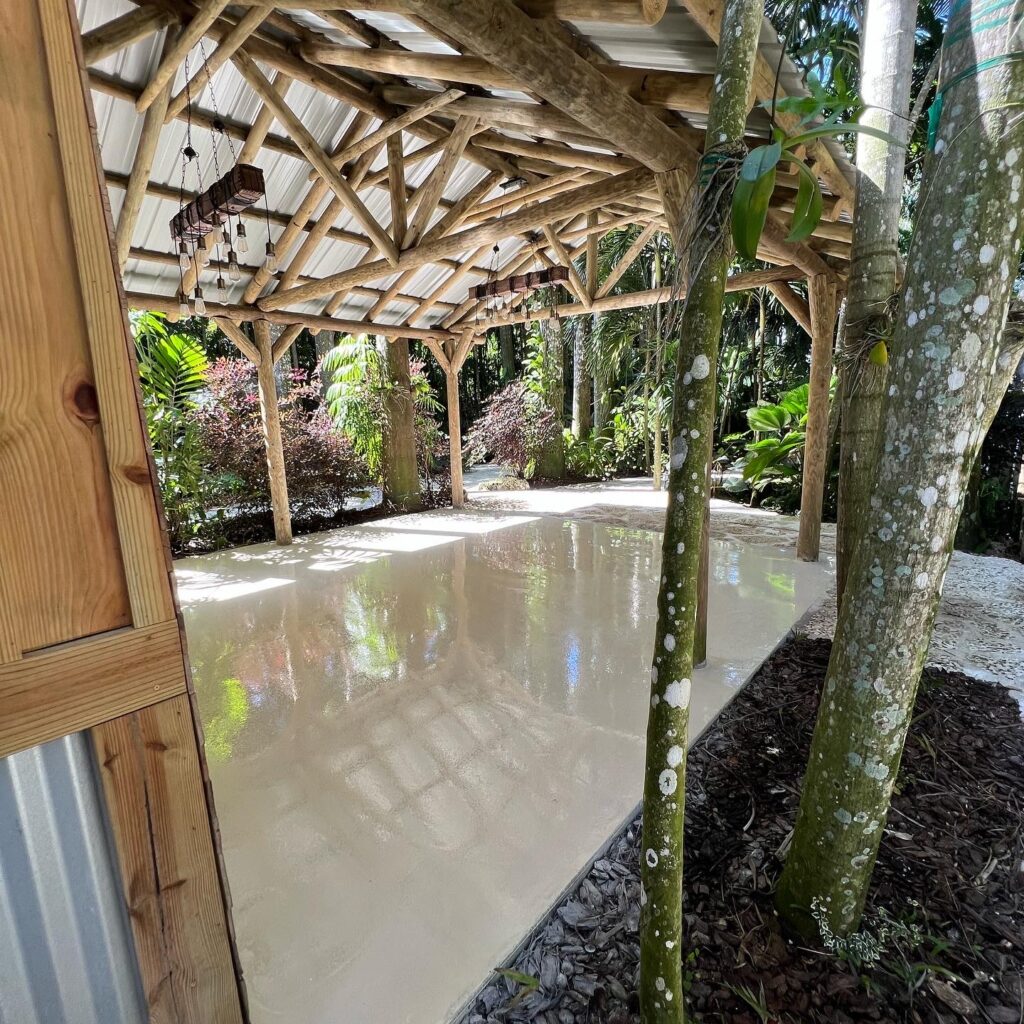Industrial epoxy flooring is the gold standard for facilities requiring durable, long-lasting floors that withstand heavy traffic, chemicals, and extreme conditions. Whether for a warehouse, manufacturing plant, or laboratory, the right epoxy flooring ensures safety, efficiency, and cost savings.
In this guide, we’ll explore why hiring a professional industrial epoxy flooring contractor is essential, what services they provide, cost breakdowns, and how epoxy compares to other industrial flooring options.
Why Hire an Industrial Epoxy Flooring Contractor?
Industrial environments are harsh on floors. From heavy machinery and chemical spills to constant foot and vehicle traffic, your floors must endure extreme wear without compromising performance. Here’s why hiring a professional epoxy contractor is critical:
✅ 1. Industry-Specific Solutions:
Expert contractors understand the unique needs of warehouses, manufacturing plants, food facilities, and laboratories, tailoring their solutions to match each industry’s requirements.
✅ 2. Proper Surface Preparation:
Concrete grinding, shot blasting, and crack repairs are crucial for ensuring that the epoxy bonds properly. Poor preparation results in peeling and early floor failure.
✅ 3. Use of Industrial-Grade Materials:
Professionals apply 100% solids epoxy and urethane topcoats, which are far more durable than DIY or commercial-grade products.
✅ 4. Compliance with Industry Standards:
Certified contractors ensure that your flooring meets OSHA regulations, FDA standards (for food facilities), and other safety protocols.
✅ 5. Long-Term Cost Savings:
While professional installation may have a higher upfront cost, properly installed epoxy flooring lasts 10-20 years, reducing repair and maintenance expenses.
Industries That Benefit from Industrial Epoxy Flooring
Warehouses & Distribution Centers
- Withstand heavy forklift traffic and pallet drops.
- Line striping for inventory management and safety zones.
Manufacturing Plants
- Impact-resistant coatings for machinery areas.
- Chemical-resistant layers for industrial spills.
Food & Beverage Facilities
- Anti-microbial, seamless floors that meet FDA standards.
- Slip-resistant coatings to reduce accidents.
Automotive & Aerospace Facilities
- Stain-resistant coatings protect from oils, fuels, and solvents.
- ESD (Electrostatic Discharge) floors safeguard sensitive electronics.
Healthcare & Laboratories
- Sterile, seamless coatings for contamination control.
- Chemical-resistant surfaces withstand harsh cleaning agents.
⚙️ Industrial Epoxy Flooring Services Provided by Contractors
| Service | Description |
| Epoxy Floor Installation | Seamless, durable coatings tailored for industrial use. |
| Concrete Surface Preparation | Grinding, shot blasting, and repairs for proper epoxy adhesion. |
| High-Build Epoxy Coatings | Thick, impact-resistant layers for extreme durability. |
| Chemical-Resistant Epoxy | Protects against spills, oils, and corrosive materials. |
| Anti-Slip Epoxy Floors | Textured coatings to improve safety and reduce slips. |
| ESD (Electrostatic Discharge) Flooring | Protects electronics from static damage. Ideal for labs and clean rooms. |
| Line Striping & Safety Markings | Creates clear pathways, loading zones, and hazard markers. |
How Much Does Industrial Epoxy Flooring Cost?
The cost of industrial epoxy flooring depends on factors like floor size, epoxy type, and installation complexity. Here’s a detailed cost breakdown:
Industrial Epoxy Flooring Cost by Type:
| Installation Type | Cost per Sq. Ft. | Total Cost for 5,000 Sq. Ft. Facility |
| Basic Epoxy Coating | $3 – $5 | $15,000 – $25,000 |
| Mid-Grade Epoxy (Chemical-Resistant/Anti-Slip) | $5 – $8 | $25,000 – $40,000 |
| High-End Epoxy (ESD, Urethane, or Multi-Layered) | $8 – $12+ | $40,000 – $60,000+ |
💡 Tip: Professional installation ensures longer-lasting floors, reducing long-term maintenance costs.
Key Factors Affecting Industrial Epoxy Flooring Cost
1. Floor Size:
- Larger spaces (e.g., warehouses over 10,000 sq. ft.) often receive lower per sq. ft. rates.
- Smaller facilities may face minimum charges.
2. Metallic Pigment or Color Choices:
- Custom colors, logos, and multi-tone metallic finishes can increase costs by $1–$3 per sq. ft..
3. Number of Epoxy Layers:
- Single-layer systems: Suitable for light-use areas.
- Multi-layer high-build systems: Required for heavy-use, high-traffic areas.
4. Topcoat Selection:
- UV-resistant topcoats: Prevent discoloration from sunlight.
- Anti-slip coatings: Add $0.50–$1 per sq. ft. but reduce slip hazards.
5. Installation Complexity:
- Floors needing crack repair, shot blasting, or leveling can add $1–$3 per sq. ft.
- Custom designs or line striping increase costs.
Choosing the Right Industrial Epoxy Flooring Contractor
✔️ 1. Experience:
Look for contractors with 10+ years of experience in industrial projects and a portfolio of completed installations.
✔️ 2. Certifications & Licensing:
Ensure they are certified epoxy installers, bonded, and insured.
✔️ 3. Industry-Specific Solutions:
The best contractors offer custom solutions based on your industry, from ESD floors for labs to anti-microbial coatings for food plants.
✔️ 4. Warranty & Support:
Reputable contractors provide a 5–10 year warranty on their work.
✔️ 5. Client Reviews & References:
Ask for references from past industrial clients and check online reviews.
Industrial Epoxy Flooring vs. Other Industrial Flooring Options
| Flooring Type | Durability | Maintenance | Cost | Best Use |
| Epoxy Flooring | ✅ High | ✅ Low | 💲💲 | Warehouses, Factories, Medical Facilities |
| Polished Concrete | ✅ High | ✅ Low | 💲💲 | Retail, Showrooms, Logistics |
| Vinyl Flooring (VCT) | ❌ Low | ❌ High | 💲 | Offices, Light Use Areas |
| Rubber Flooring | ✅ Moderate | ✅ Low | 💲💲💲 | Hospitals, Gyms, Labs |
Why Invest in Industrial Epoxy Flooring?
✅ 1. Extreme Durability:
Withstands heavy machinery, high foot traffic, and chemical exposure, lasting over 20 years with proper care.
✅ 2. Enhanced Safety:
- Anti-slip coatings reduce fall risks.
- Line striping clearly marks walkways, hazard zones, and loading areas.
✅ 3. Cost-Effective:
- Long lifespan reduces repair and replacement costs.
- Low maintenance saves on cleaning and labor.
✅ 4. Compliance Ready:
- Meets OSHA standards for slip resistance.
- FDA-approved coatings for food processing plants.
- ESD coatings for electronics manufacturing.
Frequently Asked Questions (FAQs):
How much should I charge to epoxy a floor?
- For basic industrial epoxy: Charge $3–$5 per sq. ft.
- For chemical-resistant or anti-slip epoxy: Charge $5–$8 per sq. ft.
- For high-end, multi-layered, or ESD epoxy: Charge $8–$12 per sq. ft.
How much does epoxy flooring cost in the Philippines?
- Basic Epoxy Flooring: ₱300–₱600 per sq. m.
- Mid-Grade Epoxy (Chemical-Resistant): ₱600–₱1,000 per sq. m.
- High-End Epoxy (Multi-layer or ESD): ₱1,000–₱1,500 per sq. m.
What is the charge for epoxy flooring per 1,000 sq. ft.?
- Basic Epoxy Coating: $3,000–$5,000
- Chemical-Resistant or Anti-Slip: $5,000–$8,000
- ESD or Multi-layered: $8,000–$12,000
How much epoxy is needed for a 1,000 sq. ft. floor?
- Primer Coat: 2–3 gallons
- Epoxy Base Coat: 3–4 gallons
- Topcoat (Urethane): 2–3 gallons
💡 Total: Approximately 8–10 gallons for a two-coat system.
How much area can 1kg of epoxy cover?
- 1kg of epoxy covers approximately 1–1.5 sq. m. at a thickness of 1mm.
- For industrial applications, expect coverage of 0.5–1 sq. m. due to thicker layers.
Industrial epoxy flooring is a significant investment that offers decades of durability, safety, and cost savings. Hiring a professional contractor ensures that your floors are installed correctly, meet industry standards, and stand the test of time.
- ✅ For Warehouses: Durable, slip-resistant floors with line markings.
- ✅ For Food Plants: Seamless, antimicrobial surfaces.
- ✅ For Laboratories: ESD and chemical-resistant coatings.
When you choose industrial epoxy flooring, you’re choosing a solution that protects your facility, enhances safety, and reduces long-term costs.



